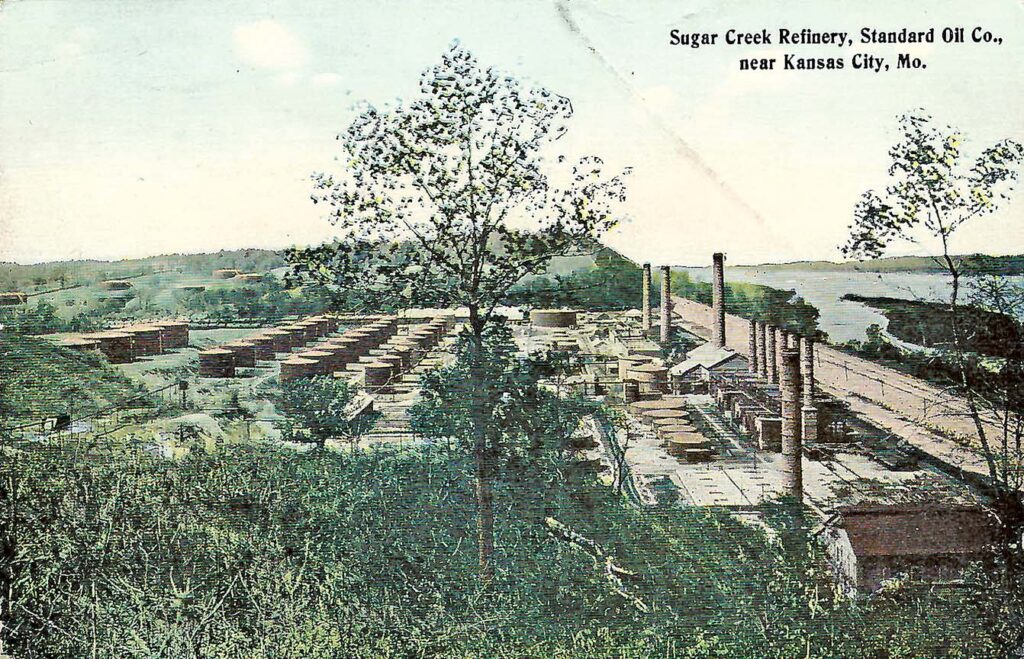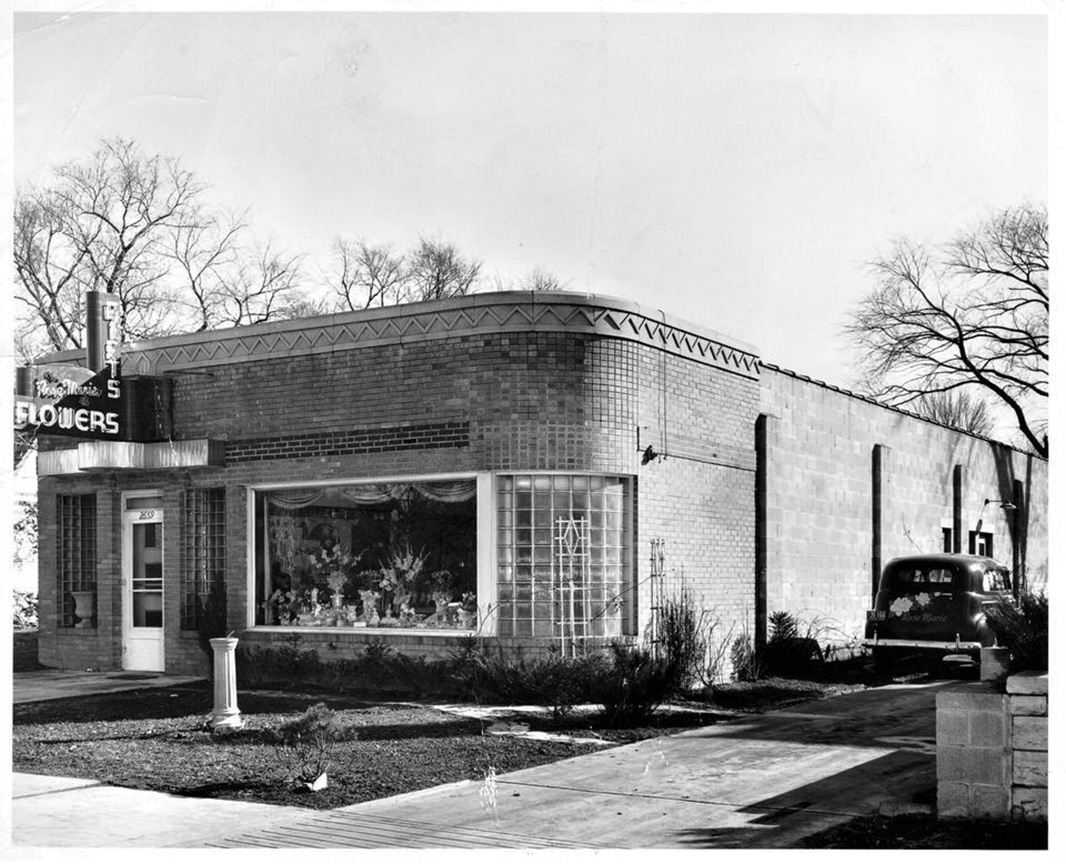
By Michael Bushnell
This early hand-colored postcard shows the Sugar Creek Refinery, Standard Oil Co., near Kansas City, Mo. The Missouri River and the operations of the refinery can easily be seen on this postcard published by the Southwest News Company of Kansas City, Mo.
The land the refinery sat on was located some eight miles east of downtown Kansas City and was purchased from James Mallinson. The refinery began processing oil in 1904 and was staffed by Standard Oil employees from the Whiting, Ind., operation. One of the first residents of the area was Mike Onka, who came from Indiana and worked at the refinery for a number of years.
Sugar Creek was officially chartered as a city in November 1920, consisting of roughly 550 acres and 1,800 residents. For most of the 20th century, the refinery played a huge role in the development of Sugar Creek as a city. Many of the refinery’s employees lived there and were involved in civic activities in the surrounding areas.
After the refinery closed in 1982, a number of lawsuits were filed against Standard Oil for wrongful death and extreme pollution of the Sugar Creek refinery site. BP America settled the suits in 2009 paying out millions of dollars in damages to affected families. The refinery may have ceased operations, but the site is still used as a fuel depot by BP.
Every June, residents host the annual Slavic Festival in William Henry Harrison Park and the Mike Onka Memorial Building. The event draws thousands and is a celebration of the town’s rich Eastern European heritage.
The handwritten message on the back of the card reads: “Dear Flossie, Good to hear from you. Glad to meet you anytime. Buck, your mama and Nola Orial should come too. Pearl and Eva have been here visiting. Wish you could have been here when they were here. Pearl went home Friday and Eva goes Wednesday. Guess I’ll have to tell you my name is Decker if you forgot it. You sent your letter to DiMoss but I got it all in spite of your joke. Love to all, Walter.” The card was sent to Mrs. L. Adney of Auburn, Ill., on March 25, 1917.



















